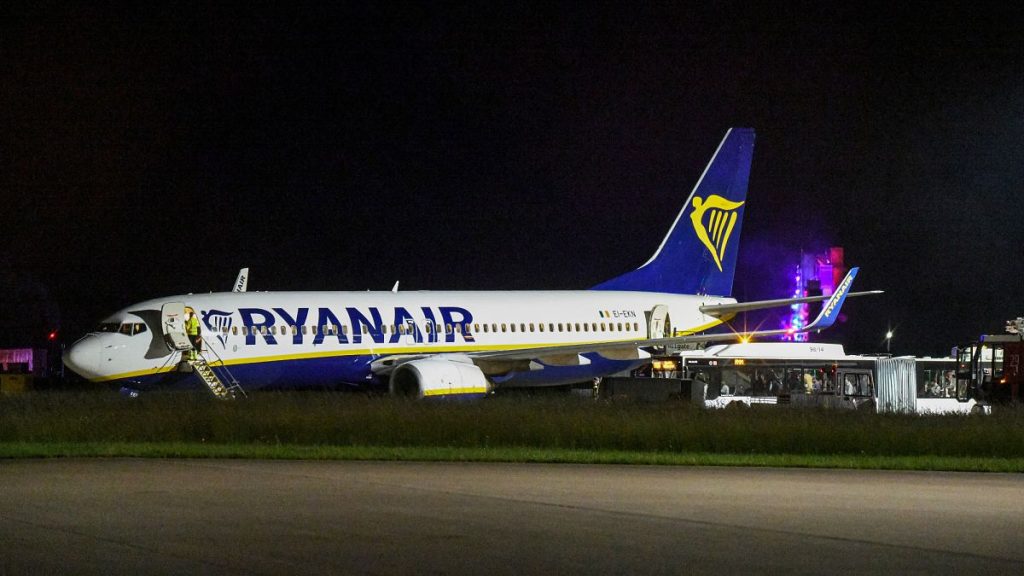Ryanair Slashes One Million Seats to Spain Amid Airport Fee Dispute
In a significant move that could reshape travel to one of Europe’s most beloved destinations, Ryanair announced on Wednesday it will cut one million seats to and from Spain this winter. The budget airline giant is reducing capacity by 10% in the Canary Islands (approximately 400,000 seats) and a dramatic 41% across other Spanish regions (about 600,000 seats). This isn’t just a temporary adjustment—the carrier indicates these cuts represent the beginning of a permanent reduction that will eliminate two million seats annually to Spanish destinations. The decision comes as a direct response to what Ryanair describes as “uncompetitive and excessive airport charges” implemented by AENA, Spain’s monopolistic airport operator which manages all major Spanish airports and several heliports throughout the country. AENA recently announced plans to increase airline fees by 6.6% starting in 2026, marking the highest fee hike in over a decade, despite the operator reportedly enjoying record profits in 2025.
Eddie Wilson, CEO of Ryanair DAC (the group’s main operating airline), didn’t mince words about the decision, stating: “The decision by AENA and its shareholders, including the Spanish Government, to increase already uncompetitive airport charges by 6.62% next year is the latest evidence that the monopolistic airport operator has no interest in developing traffic at Spain’s regional airports, and simply wants to focus on making record profits from the country’s main airports.” Wilson further explained that this “excessive increase” has forced Ryanair to redirect most of its winter 2025 capacity away from regional Spain to more cost-efficient airports in countries that actively seek to develop traffic, specifically mentioning Italy, Morocco, Croatia, Sweden, and Hungary as beneficiaries of Spain’s loss. The airline appears to be using its considerable market power to send a message about what it considers unfair pricing practices, effectively voting with its wings by relocating services to more business-friendly environments.
The cuts will disproportionately impact Spain’s regional airports and smaller destinations, potentially isolating communities that depend on tourism and air connectivity. Ryanair is completely shutting down its two-aircraft base in Santiago and will cease all flights to Tenerife North airport beginning this winter. Vigo airport will lose all Ryanair service starting January 1 next year. The airline’s base at Valladolid airport, already closed since winter 2024, will remain shuttered this winter as well, while its Jerez airport base will be closed throughout the entire winter 2025 season. Beyond these complete withdrawals, Santiago airport faces a 38% reduction in service, Zaragoza airport will see flights decrease by 45%, Asturias airport will experience a 16% cut, and Vitoria airport will lose 2% of its flights. Additionally, 36 connections between regional Spain and the Canary Islands will be eliminated, further isolating these popular tourist destinations during the vital winter season when northern Europeans typically seek warmer climates.
Interestingly, while Ryanair is dramatically scaling back operations at regional airports, it plans to maintain growth at Spain’s major hubs in Madrid and Barcelona. This selective approach highlights the airline’s strategic thinking—cutting service where profit margins are most vulnerable to increased fees while preserving presence in high-volume, high-profit markets. The airline warns that these cuts will “further harm Spain’s already vulnerable regional airports and will inevitably lead to a loss of investment, connectivity, tourism and employment in regional Spain, as many routes will become economically unviable.” This statement carries particular weight considering Ryanair’s claim that it currently contributes approximately €28 billion to Spain’s gross domestic product, making it a significant economic force in the country. The implied threat is clear: continue raising fees, and Spain risks losing not just flights but substantial economic benefits as well.
For European travelers, especially budget-conscious holidaymakers, these cuts represent a potentially significant disruption. Spain has consistently ranked among Europe’s most popular vacation destinations, setting a new record in July of this year with 11 million international visitors in a single month. The timing of Ryanair’s announcement is particularly challenging as it comes during an ongoing cost-of-living crisis affecting much of Europe. With fewer seats available, basic economic principles suggest remaining flights will likely become more expensive. The reduction in regional connectivity means travelers may face more complicated, less convenient journeys to reach their Spanish destinations, potentially requiring connections through major hubs or alternative transportation methods to reach smaller towns and coastal areas. For the millions of Europeans who have come to rely on Ryanair’s low fares to access affordable holidays in Spain, these changes could force difficult decisions about vacation plans.
The standoff between Ryanair and AENA exemplifies a broader tension in the travel industry between infrastructure operators seeking to maximize revenue and airlines trying to maintain the low fares that have democratized air travel across Europe. For Spanish authorities, this presents a delicate balancing act: AENA’s increased fees will generate additional revenue in the short term, but if they trigger lasting reductions in air service, the long-term economic consequences could be severe, particularly for regional communities heavily dependent on tourism. For travelers, this dispute serves as a reminder of how vulnerable the budget travel model remains to changes in underlying costs. As Ryanair redirects capacity to other Mediterranean and European destinations, we may see a gradual shift in tourism patterns, with countries offering more competitive airport fees gaining visitors at Spain’s expense. Whether this move by Ryanair will pressure AENA to reconsider its fee increases remains to be seen, but what’s certain is that the million seats being cut represent real people whose travel plans and local economies will be affected by this high-stakes corporate showdown.












